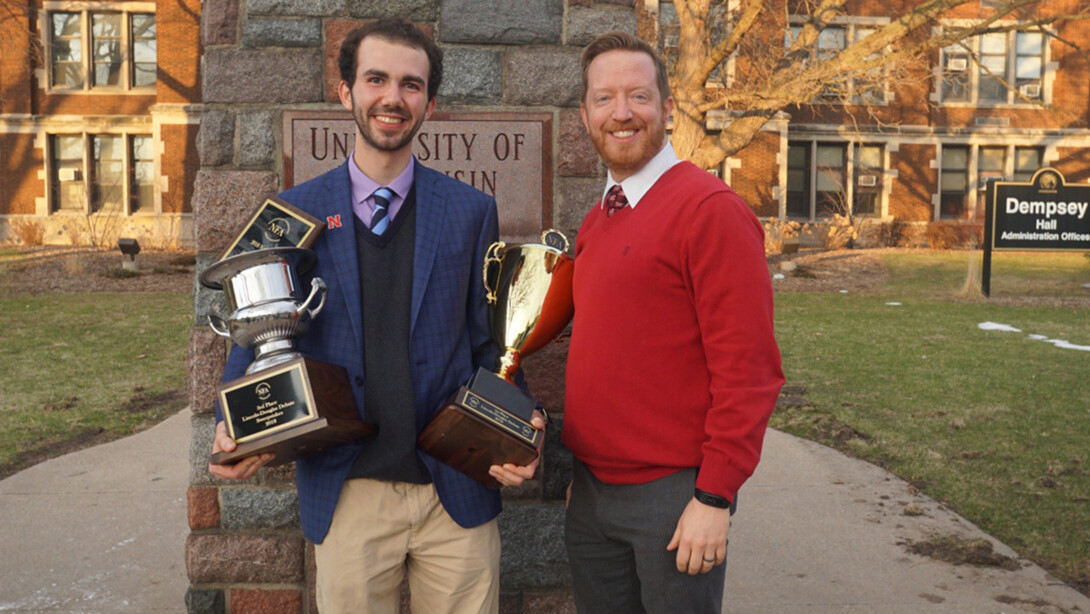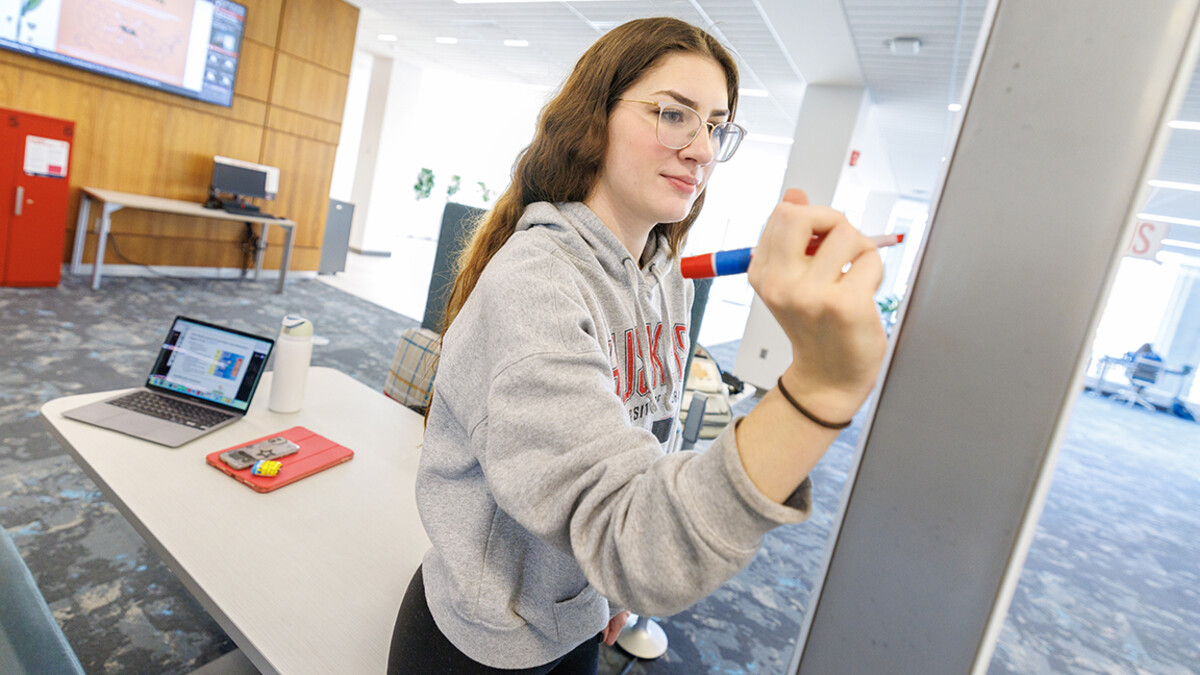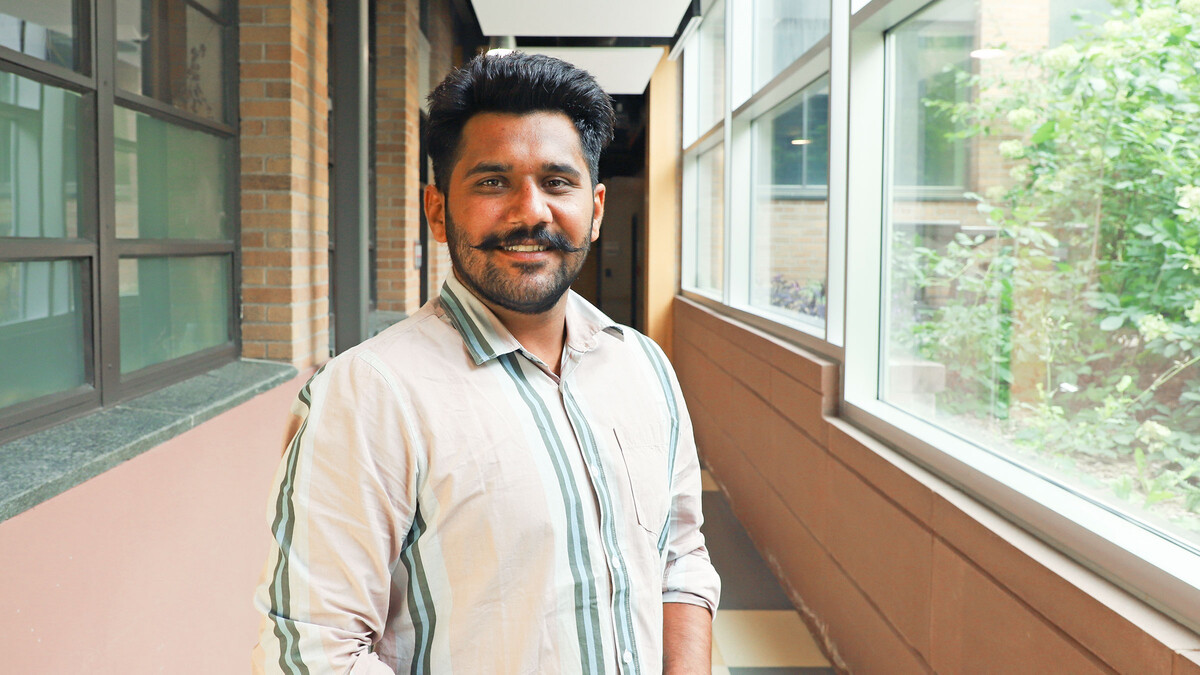
The oldest student activity at the University of Nebraska–Lincoln has added a national championship to the Huskers’ trophy case.
Propelled by a unique policy defense, Colten White made university history by earning the first national title in the 147-year history of Nebraska’s debate program. The junior English and speech secondary education major earned top honors in Lincoln-Douglas Debate during the National Forensics Association’s National Tournament, April 19-23 at the University of Wisconsin, Oshkosh.
White, a Kearney native, went 4-2 in the preliminary competition before earning a perfect 5-0 mark in the elimination round. He was also named the fifth-best speaker in the tournament — a ranking based on points scored during preliminary round debates. The speaker ranking is also the university’s best finish at the tournament.
“Colten’s last five rounds were all single-elimination against the best debaters in the nation,” said Aaron Duncan, assistant professor of practice in communication studies and program director for the speech and debate program. “To win all five rounds against teams that have been preparing all year for you is truly incredible.”
Nine Huskers competed in the tournament, helping Nebraska debate take third in the team competition — the best finish in school history. First-year competitor Addisson Stugart, a freshman psychology major, also advanced to the elimination round.
Other Nebraska students who competed in the national tournament include: Colin Dike, Britnee Hart, Matthew Matuzeski, Morgan McGee, Madison Morrissette, Zach Thornhill and Ethan Wheeler.

The 2017-18 season debate topic explored if the federal government should substantially increase the regulation of state/local police misconduct. Competitors develop defenses for and against the resolution and use them during contests.
At the start of the spring semester, White developed a unique affirmative defense that would align a Department of Justice grant program with community-oriented policing initiatives that adopted non-discrimination training based on gender identity.
“I argued that conditioning these grant funds reserved for state and local police could result in reforms that would result in better treatment for members of the (lesbian, gay, bisexual and transgender) community,” White said. “It was a unique argument and that is advantageous in competitions. It’s also something I wanted to pursue because social justice and LGBT rights are interests of mine.”
The defense showed its strength out of the gate, helping White earn first place at the Gorlock Gala at Webster University in St. Louis in January. The tournament is the second largest in the nation, drawing teams from both the east and west coasts.
White credited his teammates and debate team coaches, including Duncan and Adam Blood, a graduate student in communication studies, for their ongoing support, research assistance and work to strengthen defenses of the topic.
“Support from the university has also been tremendous,” White said. “I even received a congratulatory message from Chancellor (Ronnie) Green. That really means a lot because debate isn’t as visible as some other national championship programs on campus.”
While he looks forward to competing next season, White plans to continue his path toward becoming a secondary education teacher. He’s strengthening that course by working as the debate coach for Lincoln North Star High School and by participating in a summer internship coaching middle and high school debaters in Shanghai, China.
“I’ve found that these coaching opportunities provide unique perspectives in terms of professional growth, improving debate skills, and developing teaching techniques,” White said. “Plus, it’s fun coaching and learning from the next generation of debaters.”







